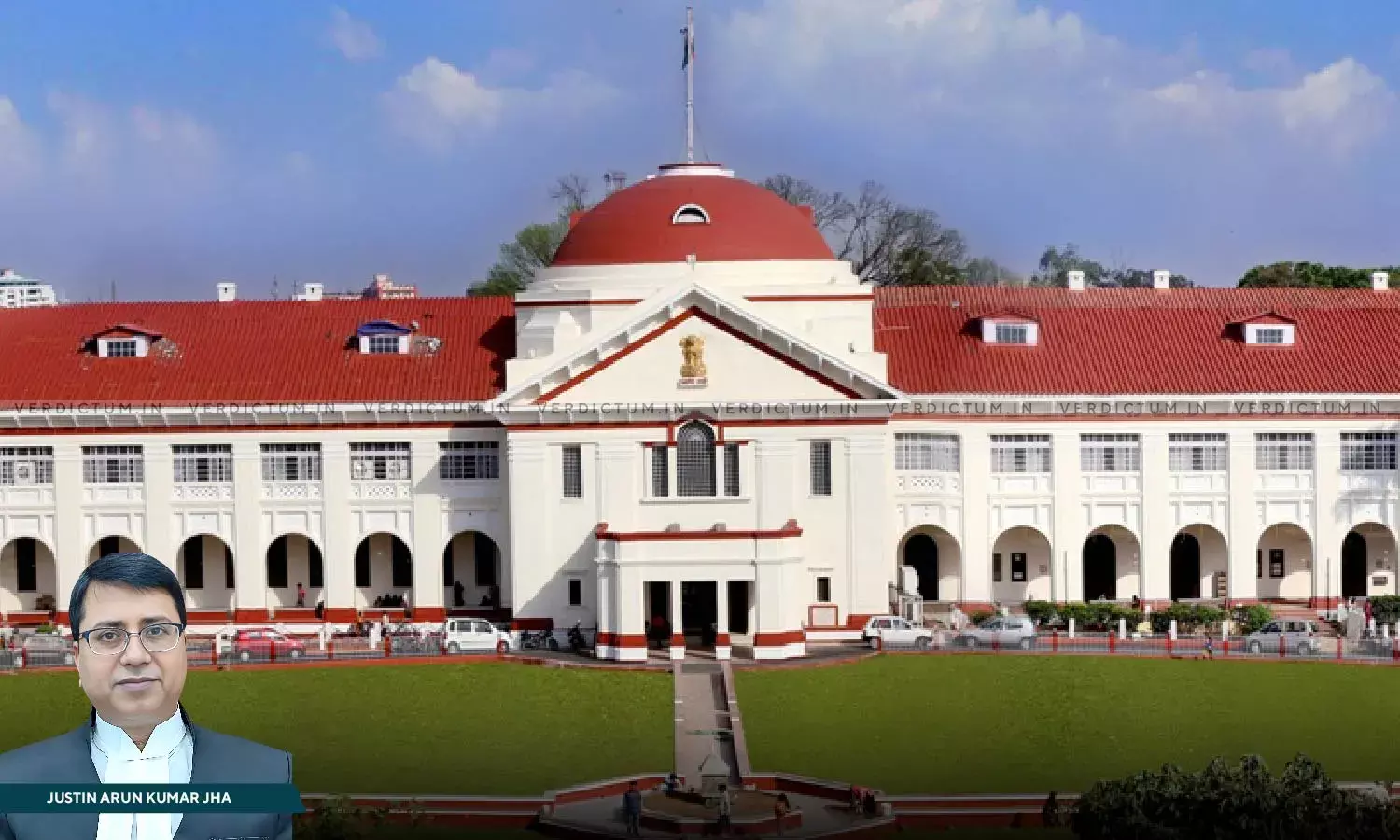Decree Does Not Become Nullity Merely Because Some Defendants Died During Pendency Of Suit: Patna High Court

Justice Arun Kumar Jha, Patna High Court
The Patna High Court observed that the decree would not become nullity because some of the defendants died during pendency of the suit.
The High Court was considering a petition filed under Article 227 of the Constitution of India for quashing the order of the Executing court rejecting the application filed for dismissal of the execution case.
The Single-Judge Bench of Justice Arun Kumar Jha said, “...it is evident that the petitioner could not claim the decree to be nullity only because some of the defendants died during pendency of the suit. If the heirs of such defendants are already on record and they did not contest the suit or were proceeded ex-parte, by their conduct, such legal heirs are not entitled to any relief on the ground of abatement or decree becoming a nullity against such person.”
Senior Advocate Mahesh Narayan Parbat represented the petitioner while Advocate Naresh Chandra Verma represented the respondents.
The facts of the case suggested that the petitioner was one of the judgment-debtors and respondent no. 1 was the decree-holder in the Execution Case. The respondent no. 1 filed a Title Suit against the petitioner and the other respondents with a prayer for declaration of his title and possession over 3 acres 43 decimals of land apart from other reliefs. The Title Suit was decreed with a direction to the defendants to hand over vacant possession of land to the plaintiff failing which the plaintiff would be entitled to get possession of land in question, through the process of the court. Thereafter, the plaintiff filed an Execution Case for execution of the decree against all the defendants named in the decree.
However, after obtaining the death certificates of some of the defendants, the petitioner filed an application before the executing court for holding that decree under execution was non-executable being nullity as the same was passed against dead persons. The petitioner prayed for dismissal of the execution case on the aforesaid ground. A rejoinder to the said application was filed on behalf of the decree-holder. The Executing Court rejected the application of the petitioner and thus the matter reached the Apex Court.
For the petitioner, Parbat submitted that the impugned order suffers from arbitrariness and is colourable exercise of power. It was also contended that the application was filed under Sections 47 and 151 of the Code of Civil Procedure and it was dismissed without instituting a miscellaneous case.
The Respondent’s Counsel argued that there is no requirement of law to register a miscellaneous case under Sections 47 and 151 of the Code when no provision has been mentioned while filing the application and when the short point in issue could be decided by the court on the basis of material available on record.
At the outset, the Bench observed, “Normally when an application is filed under section 47 of the Code, Rule 459 of the Civil Court Rules provides that a miscellaneous case should be instituted.” It was further observed that the institution of miscellaneous case was not warranted in this matter as the application filed for dismissal didn’t mention the provision under which it was filed and there was no prayer for institution of any miscellaneous case to consider the objection raised by the petitioner.
“Further, if there is no issue raising disputed facts requiring adducing evidence and elaborate hearing, I do not think there is any requirement of institution of any miscellaneous case on the basis of an application which has been filed without making any such prayer or without mentioning any provision”, the Bench added.
It was also opined that a decree can become nullity only in cases when the court lacks inherent jurisdiction to pass the decree, the decree has been passed against a dead person and the decree has been passed in ignorance of provision of law or the law was promulgated making a decree inexecutable after its passing. Noting the contention that the heirs/legal representatives of the deceased defendants were already on record, the Bench noted that when the estate of the deceased defendants is properly represented, there is no scope of decree becoming nullity at all.
The Bench also opined, “It is the established law that an Executing Court can neither travel behind the decree nor sit in appeal over the same or pass any order jeopardizing the rights of the parties thereunder and this observation has been made by the Hon’ble Apex Court in a number of cases including the case of Topanmal Chhotamal Vs. Kundomal Gangaram & Ors., reported in AIR 1960 SC 388.”
Further placing reliance upon the judgment in Dhurandhar Prasad Singh vs. Jai Prakash University and Ors. [AIR 2001 SC 2552], the Bench held, “It is only in the limited cases where the decree is by a court lacking inherent jurisdiction or is a nullity, that the same is rendered non est and is thus inexecutable. An erroneous decree cannot be equaled with one which is a nullity. There are no intervening developments as well as to render the decree inexecutable.”
According to the High Court, the impugned order would not become assailable only because no miscellaneous case had been instituted on a vague petition filed on behalf of the petitioner and an erroneous claim of non-executability of the decree had been made. Finding the order of the Executing court to be a reasoned one which was passed after due consideration of each and every aspect of the matter, the Bench dismissed the petition.
Cause Title: Abdul Badud v Abdul Quayum & Ors [ Case No. Civil Miscellaneous Jurisdiction No.562 of 2018]
Appearance:
Petitioner: Senior Advocate Mahesh Narayan Parbat, Advocates Ved Prakash Srivastava & Praveen Prabhakar
Respondent: Advocates Naresh Chandra Verma & Natraj Verma
Click here to Read/Download Order:

